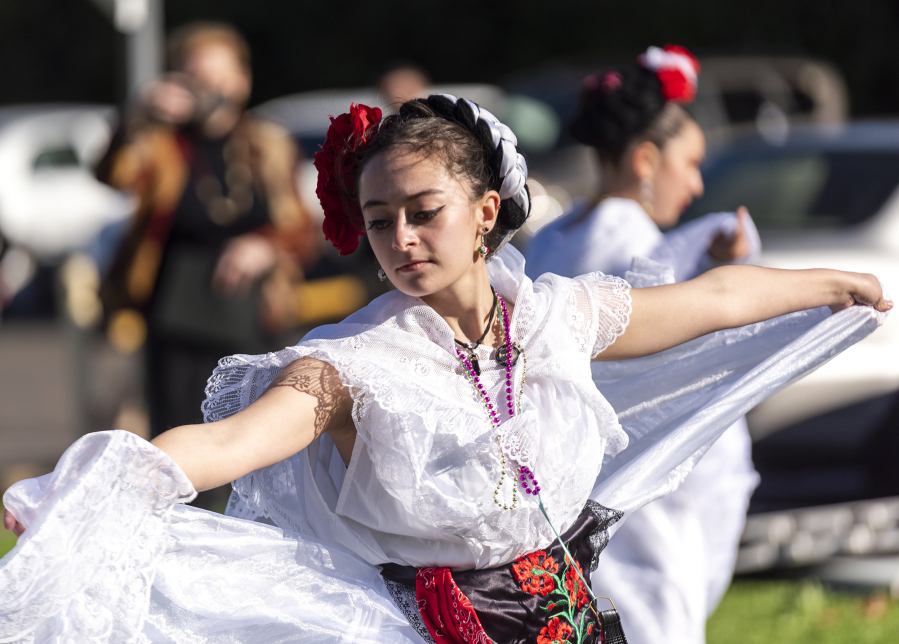People gathered at Vancouver’s River City Church on Saturday to celebrate Hispanic heritage in the days leading up to the Day of the Dead.
“The biggest takeaway is to acknowledge our community as a big family to assist each other,” said Southwest Washington League of United Latin American Citizens president Ed Hamilton Rosales.
Folklórico danced in traditional outfits that reflect elements of Mexico’s culture, and a trio of musicians performed alongside the group. Their music echoed in the air, paired with a fall breeze that carried orange leaves through event tables. Attendees danced, including city council candidate Diana Perez, and ate sugar-coated bread and homemade tamales.
Mayor Anne McEnerny-Ogle virtually presented a proclamation to emphasize the cultural significance of the Day of the Dead, which is Nov. 1 and Nov. 2, and encouraged residents to learn more about the holiday. An author and educator, Guillermo Marin, presented the history, philosophy and culture of the Anahuac region during the event.
There was a communal altar, or ofrenda, where people were encouraged to write notes to departed friends or family and leave them at the foot of the table.
Rosalba Pitkin, Clark College’s diversity outreach manager, shared her personal experience creating an altar to honor her ancestors — a tradition in which she has participated since she was 7 years old. She said the Day of the Dead reunites families with the souls of their deceased relatives. It’s a celebration of lives lived, rather than mourning what was lost.
“It’s important to put (the altar) up for the community because there are many souls that passed because of the pandemic,” she said.
Pitkin spoke about the symbolism of the holiday rituals, specifically how an altar is created to respect the dead. People need to understand that the array of offerings on an altar should not be construed as being decorative, she said; every item is an important symbol.
Each item has meaning
Each item placed on an altar has meaning: Candles guide souls to the land of the living; marigolds represent the nature of life; and water satiates souls’ thirst after their journey. Other items include incense, sugar skulls, pictures of the dead and their favorite dishes.
Pitkin asked that people think before appropriating Day of the Dead symbols, such as a painting one’s face to look like La Catrina, because it disrespects the dead and the living who honor them.
Free food, clothing
The celebration also coincided with the organization’s bimonthly market, where attendees filled paper sacks with market goods to take home for free. There were boxes of chiles, fruits, breads and other produce. The League of United Latin American Citizens partnered with local organizations to set up a clothing drive, as well as a market clinic where people were encouraged to get a COVID vaccine.
“Our clinics have varied in many ways to reach the Latino population,” Rosales said. “We’ve taken the vaccination to them to make sure the community is being as safe as possible.”




